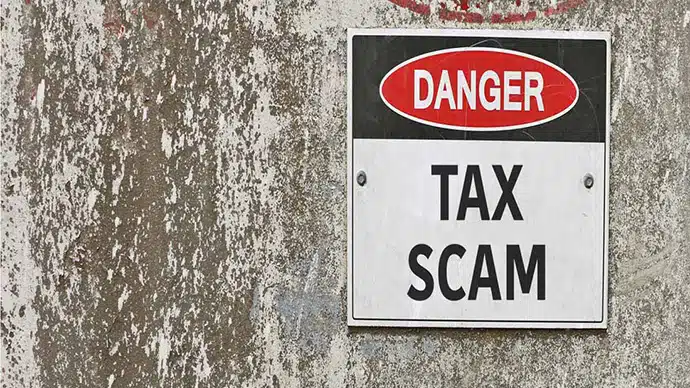Now that we’re in the post-tax season, you may have noticed that the airwaves and Internet are awash in ads from companies offering to help settle the taxes you owe the Internal Revenue Service (IRS) “for pennies on the dollar.”
Because Billshark is always trying to watch out for your money, we thought we’d take a closer look at these too-good-to-be-true claims. And we’ve found that the old saying seems to hold in this case as well: If it’s too good to be true, it probably is.
As we warned you earlier this year in regard to debt settlement firms, there’s nothing legitimate companies like these can do for you that you can’t do for yourself, for free. The illegitimate ones will just flat-out steal your money.
The problem is, so often people see ads on television and tell themselves, “Well, it must be true, or the government wouldn’t let them get away with saying it.”
So why doesn’t the federal government ban these ads? Because while they might be a bit misleading or deceptive, the government has to prove that their claims are actually false. And advertising like this often walks right up the edge of the line, but is careful never to actually cross it.
Think about the claims: “settle for pennies on the dollar” could mean 99 cents of every dollar owed; “we can” stop wage garnishments, etc., doesn’t guarantee they will; “significantly reduce your tax debt” depends on your definition of the word “significantly.”
The fact is, you put your money at serious risk if you give it to these firms instead of contacting the IRS yourself.
A recent column in The Washington Post reported interviewing taxpayers who had used these tax settlement firms, and summarized their experiences:
“You call. They take your information and you send them documents—W2 forms, 1099s, etc. Then you wait. And wait. And wait. You call back. You are told they are processing your application or that they are waiting for a response from the IRS. You call again, but this time you can’t get anyone to explain why it’s taking so long for you to get relief.
“You’ve been had. And the money you’ve spent could have been used to pay down your debt.”
Still not convinced? Here’s what the Federal Trade Commission (FTC) has to say on the subject:
“If you pay [tax relief companies] an upfront fee, which can be thousands of dollars, these companies claim they can reduce or even eliminate your tax debts and stop back-tax collection by applying for legitimate IRS hardship programs. The truth is that most taxpayers don’t qualify for the programs these fraudsters hawk, their companies don’t settle the tax debt, and in many cases don’t even send the necessary paperwork to the IRS requesting participation in the programs that were mentioned. Adding insult to injury, some of these companies don’t provide refunds, and leave people further in debt.”
So what can you do instead? Contact the IRS. Do not, under any circumstances, ignore the fact that you owe them money you can’t afford to pay, or worse, not file your taxes at all. Every single day you don’t deal with the issue, penalties pile up with interest added not only to the original debt but to the penalties. One taxpayer reported starting with a $14,000 tax bill that eventually ballooned to $182,000 due to interest and penalties.
The IRS has three ways to assist delinquent taxpayers.
If you are nearly destitute and really, really can’t pay a dime, the IRS may put your account in a “Currently Not Collectible” status, but penalties and interest will still accrue.
Second, the IRS may allow you to set up a payment plan. If you’ve filed all required tax returns in the past, and owe less than $50,000 in tax, penalties, and interest, you are eligible to spread out your repayments over as long as six years.
Third, the program that the tax relief companies are referencing in their ads is called an “Offer in Compromise Qualifier,” or OIC, an onerous and time-consuming process.
“The tax-debt relief companies often don’t adequately disclose that getting an OIC accepted is a Herculean process,” The Post wrote. “To qualify, the IRS will look at your income, expenses, ability to pay and, most importantly [sic], whether you have any assets—including equity in your home.”
You can apply for an OIC, and these other programs, yourself. You do not need to pay their “tax specialists and attorneys” for access to them. If you feel unequal to the task, the IRS sponsors the free Low-Income Taxpayer Clinics (LITCs) nationwide to help you through the process. Find more information about it here: Low Income Taxpayer Clinics (LITC) overview.
And let Billshark help you find extra cash to pay on debt like this or spend however you like. Let us examine your bills, and find you hidden savings.
